Interview: Enrico Gallino – Additive manufacturing materials specialist & enthusiast
The most exciting phrase to hear in science, the one that heralds new discoveries, is not ‘Eureka!’ but ‘That’s funny…’ – Isaac Asimov
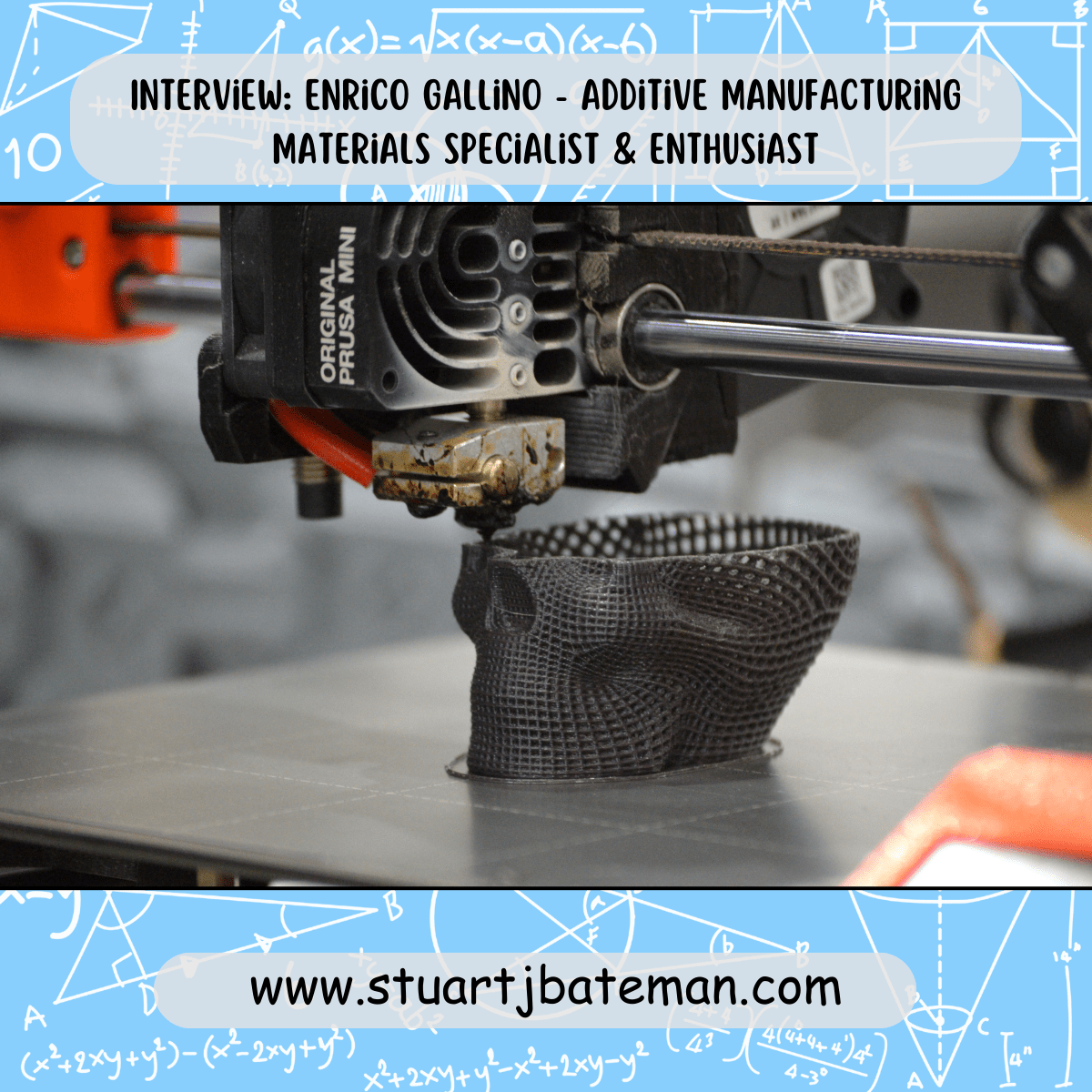
We’re taking things to the next level with our upcoming interview! This time, we’re featuring a Materials Science Engineer from LinkedIn whose expertise you don’t want to miss. If you haven’t come across him yet, follow this link to explore his daily posts on Additive Manufacturing.
Beyond sharing incredible insights into AM and the rapidly evolving world of materials—one of the most transformative areas in engineering over the past 60 years—he also documents his travels, visiting fascinating companies and exhibitions across Europe.
Stay tuned for what promises to be an engaging and insightful interview!
Todays interview is with Enrico Gallino! let’s find out what insights he has to share!
1. Can you briefly describe your career path and what led you to choose your specific field of engineering?
I have a background in materials science. After completing my MSc with a specialisation in polymer science, as I wanted to grow my skillset as a researcher and manage a research project, I did a PhD where I had the opportunity to work on the development of functional coatings for medical applications (cardiovascular stents) working in between two research labs (one in France and the other one in Canada). After my PhD and a couple of years of post-docs, I decided that I wanted to move to industry to apply my skills and knowledge to the development of new products.
Over the years, I’ve had the opportunity to work on materials related projects in a variety of industries. I firstly worked as an R&D Manager in the cosmetic industry, developing surface treatments and encapsulation solutions for cosmetic pigments and dyes.
After that, with my family we moved to the UK and I worked a couple of years in the R&D department at Tata Steel, developing coatings for steel products used in the construction industry.
Since 2017, I work in the additive manufacturing team at Ricoh. I initially joined as a materials engineer, working on the evaluation of new polymer powders for additive manufacturing and I’ve then gradually moved in a more customer facing role where I work with customers by providing technical support for the development of new applications and adoption of additive manufacturing whilst still being involved in some of our internal R&D projects
2. What key skills do you believe are essential for success in your engineering discipline, and how did you develop these skills?
To mention a couple:
Curiosity.
I have been a curious person since my childhood always asking questions (maybe too many sometimes!) and trying to understand how things works.
In my daily role, being curious it’s fundamental in order to ask the right questions to our customers to better understand their challenges, pain points and goals in order to be able to provide them with most suitable solution.
Communication
Being able to effectively communicate with people both internally and externally of an organisation, at different levels and with different backgrounds (technical and non-technical) and culture is fundamental.
I’ve been able to develop my communication skills throughout my different roles (writing reports, scientific articles, by doing presentations,….) and also more recently by writing regular posts about the additive manufacturing industry on social medias (mainly LinkedIn).
I have also had the opportunity to live and spend time in different countries (Italy – my home country -, France, Canada, UK) so I have been also able to develop my language skills.
3. What are some common challenges you face in your industry, and how do you approach solving them?
Additive manufacturing is still a relatively new manufacturing technology compared to more established and conventional manufacturing technology such as CNC machining, injection
moulding, casting, etc.
Especially when it comes to identify applications beyond prototyping, this is still a challenge for the technology.
For me, education of the end users is key. When speaking with customers and people interested in the technology, being able to provide insights on the differences between the different technologies, what materials are available, how to design parts to maximise the benefits of the technology, what the technology can and cannot do and the competitive advantages it can provide are essential to drive a wider adoption of additive manufacturing.
4. How do you stay current with the latest developments and technologies in your field?
Curiosity again! I read industry articles, attend webinars, talk to people during conferences and industrial events, use of social medias. All those different “channels” are a great way to stay up
to date with the latest development in a fast moving and ever evolving industry like additive manufacturing.
6. Did you have a mentor early in your career? How did their guidance impact your professional development?
My PhD supervisors. As I was at the early stage of my careers, I have been able to learn from them what it takes to manage research projects. They have helped me in having a more structured approach when tackling a new topic/challenge and pushed me to continuously improve on the quality of the work delivered.
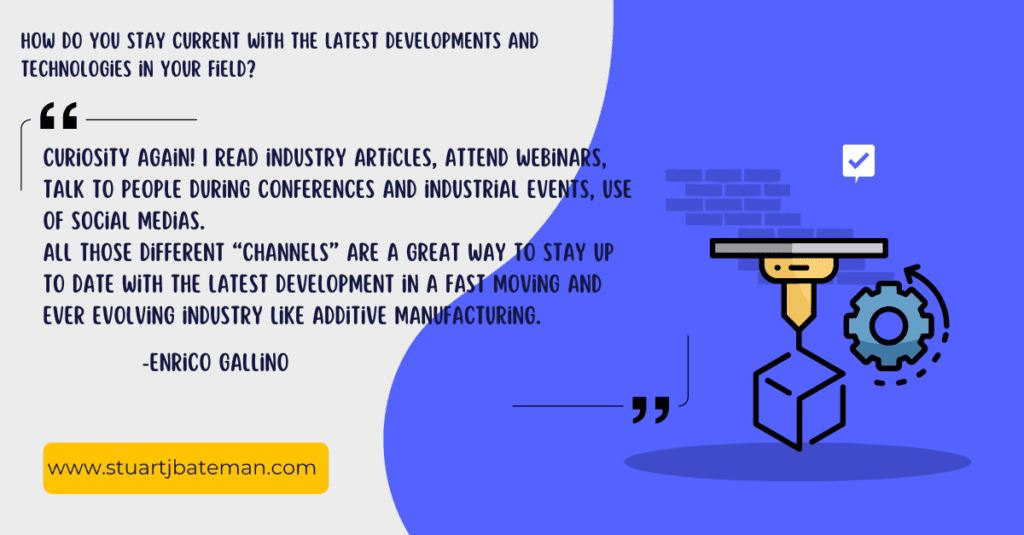
7. What practical experiences or internships were most beneficial to you during your studies or early career?
Definitely my PhD. It was a fantastic opportunity to manage a project from A to Z. Not always an easy sail with a lot of challenges to overcome but also very rewarding in the end.
I consider it as my first professional experience (and I was not considering myself a “student”).
It was particularly valuable as it has enabled me to develop so many soft skills (communication, team work, project and time management, resilience, collaboration, networking,…) that have been very useful in all my roles in the industry so far.
8. How important are soft skills such as communication, teamwork, and leadership in your role, and how do you cultivate them?
They are essential skills. It takes time and effort to develop them. I believe that the best way to learn and develop those skills is by experience and on the job. It is also important to have a flexible mindset as it is crucial to be able to adapt your communication, teamwork and leadership style to the specific situations and workplace/team.
9. What advice would you give to young engineers or engineering students who are just starting their careers?
Recurring theme in my answers but “stay curious” and try to find a topic/industry you are really passionate about. Talk with people, stay up to date with the key development in your sector, start creating your network early on. Also do not just focus on developing your technical skills as developing a wide range of soft skills is probably even more important for effective career development and progression.
10. What emerging trends or technologies do you think will have the biggest impact on the engineering field in the next five to ten years?
Artificial intelligence and machine learning are set to revolutionise how we design things, data analysis, process controls, predictive maintenance and speed-up scientific discoveries enabling smarter decision-making and optimization in engineering projects.
Advances in automation and robotics will also enhance manufacturing and construction efficiency, safety, and precision, with collaborative robots working alongside humans in various environments.
As a material scientist, I am also convinced that new materials will also have a big impact in providing more sustainable solutions for our planet and to make things lighter, more durable and “smart” I am sure additive manufacturing will also be able to transform how some products are made by enabling product customisation at scale, increased efficiency, more resilient supply chains and contribute to more sustainable manufacturing approaches.
A huge thank you to Enrico for taking part in this interview! I particularly enjoyed his answer to question 10. Since the pandemic, we’ve witnessed a significant leap in AI’s ability to process data at unprecedented scales, leading to groundbreaking insights into the Covid virus and its mechanisms. Today, these advanced tools are readily available to tackle challenges in optimization, science, and data analysis.
If you enjoyed this interview, be sure to visit [this section] to explore interviews with other engineers who have shared their perspectives, offering even more fantastic insights!
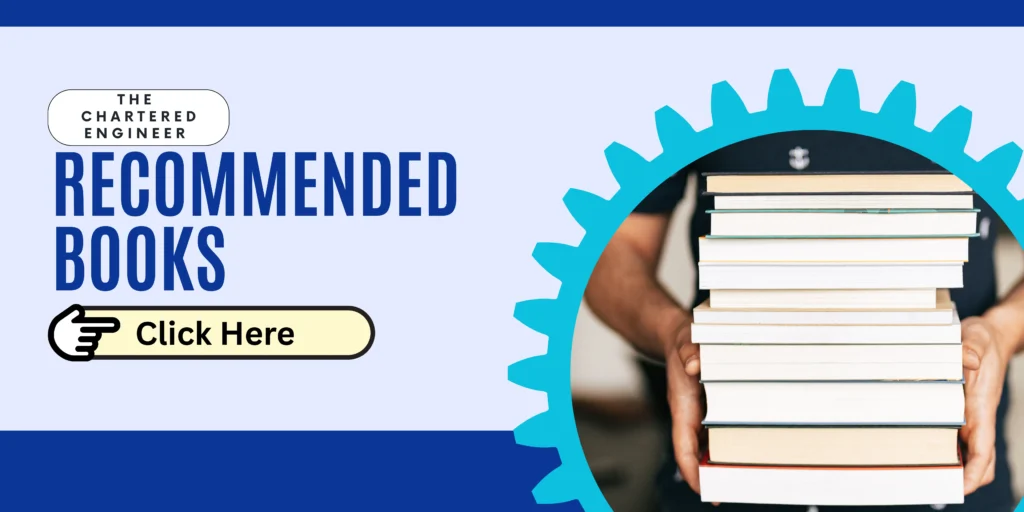
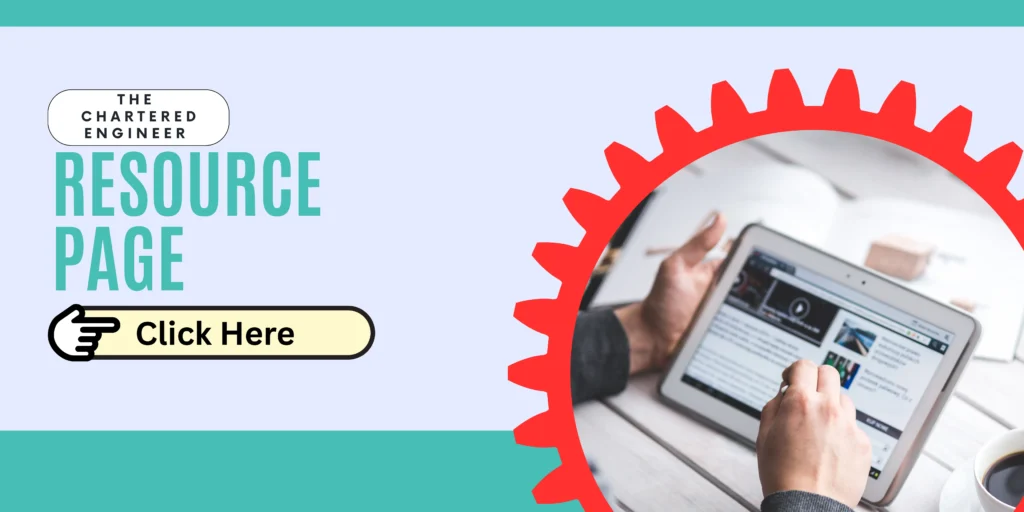
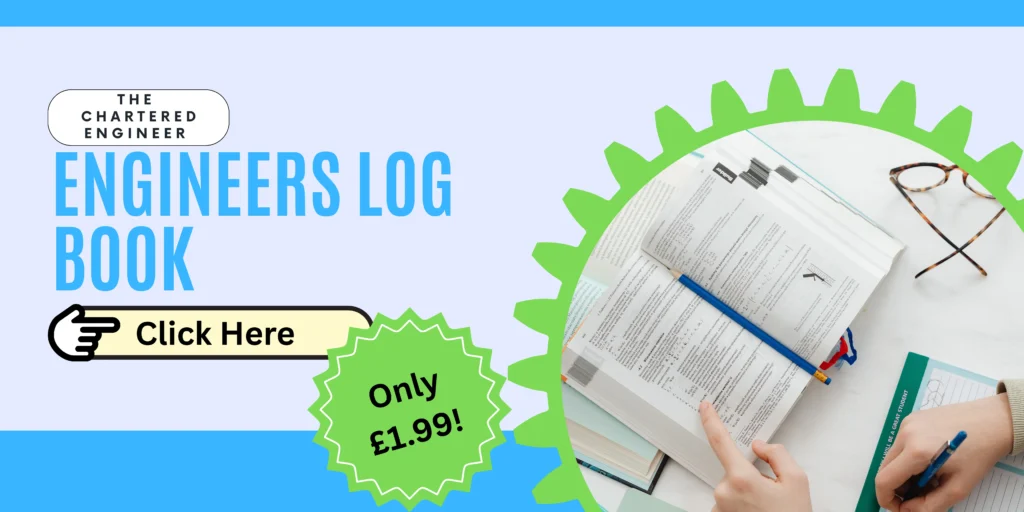
What are your thoughts? Have I covered everything or is there more you know and would like to share?
I’m always learning and improving this site and my blogs, so please feel free to get in touch with me via LinkedIn or this site to discuss any topics I have covered.
If you’re having trouble finding ways to progress check out these sites filled with free learning tools:


Discover more from The Chartered Engineer
Subscribe to get the latest posts sent to your email.